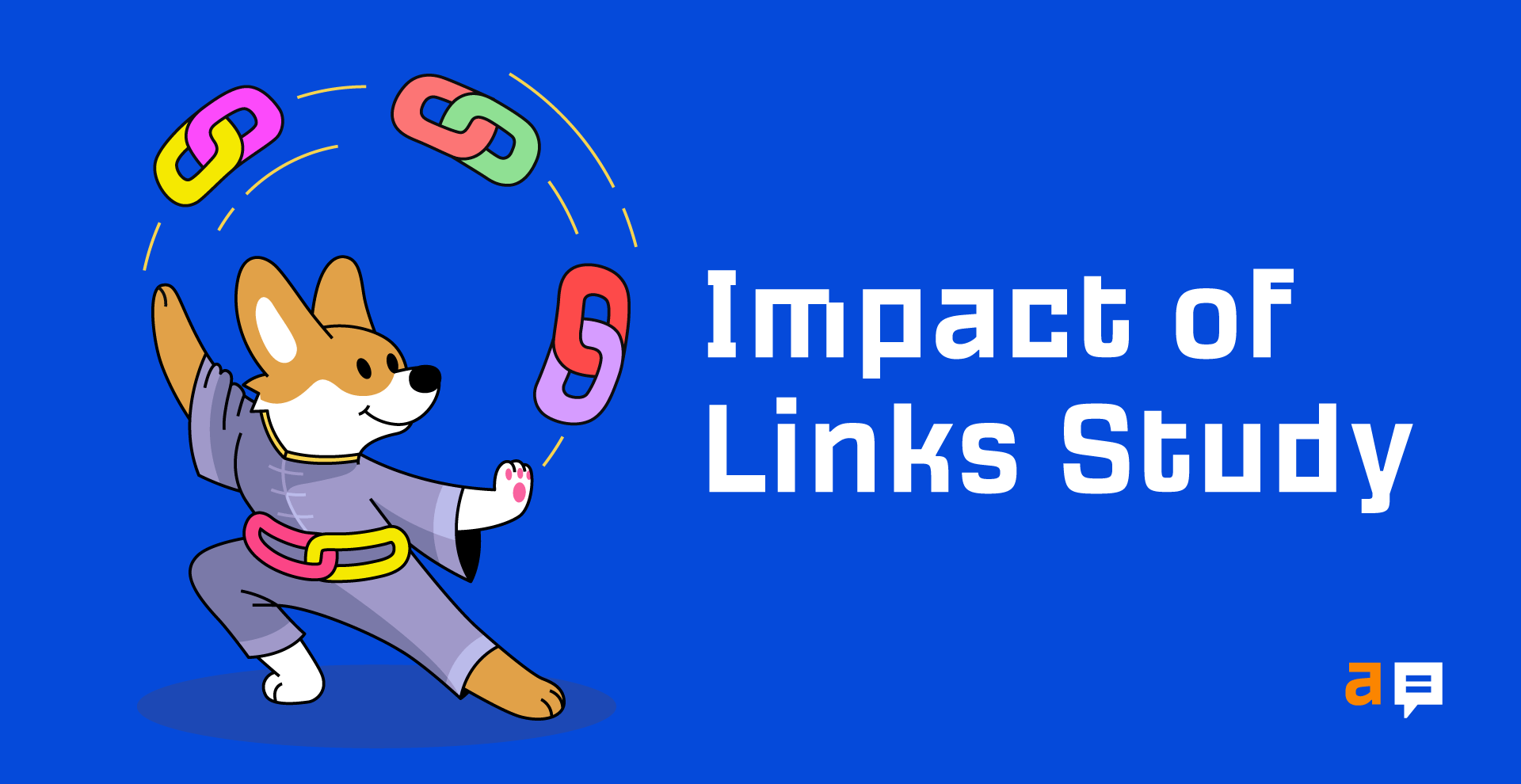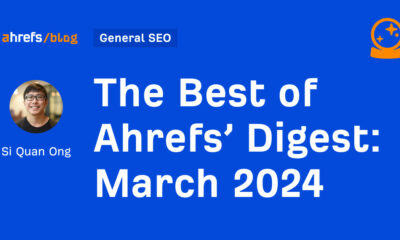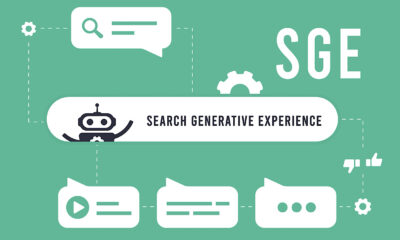SEO
Do Links Still Matter for Rankings? A Study by Ahrefs

In the past few years, I’ve seen more people saying that links are dead, they don’t matter for rankings, or they’ve lost their importance. Links are a confirmed major ranking factor, so I figured it would be interesting to test their impact.
Instead of building links to pages, I figured the easiest way to test this would be to remove links to a page and see what happened. With the help of Joshua Hardwick, Ahrefs’ head of content, we picked three articles and disavowed all links to these pages for a month, thus removing the value of the external links. A month later, I removed them from the disavow file, which should have restored the value of the links.
The disavow file was processed immediately, but the links inside the file still needed to be recrawled before the impact of the disavow could be seen. It was the same once the disavow was removed. The linking pages had to be crawled again for us to see the impact. I figured a month for each time period should be long enough for the most important links to be crawled and for us to see an impact.
We disavowed 3,476 links across three blog posts. It was uploaded on Aug. 17 and removed four weeks later on Sept. 14.

Spoiler alert: Links still matter. Traffic and ranking keywords were down after I disavowed the links and up after I removed the disavow file.

Organic traffic disavow test.
Look at the immediate drop in traffic when I uploaded the disavow file on Aug. 17. The downward trend continued for a while as more of the pages linking to these blogs were crawled. You can also see the immediate lift when I removed the disavow file on Sept. 14. I suspect this immediate impact is because more valuable links are on pages that probably have higher PageRank and are crawled more often.
Now let’s look at the examples in more detail.
The test pages
The chart above shows Ahrefs’ Average Organic Traffic, which is a stable metric that measures search visibility. It approximates traffic based on rankings and expected CTR for all the keywords a page ranks for.
I wanted a stable metric because things like clicks or impressions could be impacted by seasonality or user behaviors. The metrics for clicks and impressions from Google Search Console mostly followed the same trends, but not in all cases.
The test covered three different pages in total, so let’s look at each example.
Example 1.
Page: Top YouTube Searches (2021)

I expected that we would lose rankings for some of the more popular searches and end up losing some traffic because of how competitive this topic is. That ended up being accurate. This page lost about 18% of its search traffic in the first month. But I didn’t expect it to be another 4% down after we removed the disavow file.
We’ve recovered over half of the loss since then, but the search traffic is still down overall.
Let’s look at why.
Here are some of the terms that influenced our traffic estimates the most and their ranking positions during the test.

For “youtube searches,” a YouTube page and a Google Trends page pushed our page down in the results during the test. We are back to #1 and have recovered the traffic for this term.
For “what is the most searched thing on youtube” and “most searched thing on youtube,” a competitor took the featured snippet from us and still holds it.
Example 2.
Page: SEO Pricing: ~350 Agencies, Consultants, and Freelancers Reveal How Much SEO Costs

I wasn’t expecting much of an impact on this page by removing the links simply because the competition here was a lot weaker. But in this case, I was wrong. While the links were disavowed, this page lost 13.3% of its traffic. But when we removed the file, the page got back to 99% of the previous traffic.
Here are some of the terms that influenced our traffic estimates the most and their ranking positions during the test.

Example 3.
Page: Top Bing Searches (2021)

Because of the competition here, I expected this page to see a decent drop. Interestingly, the traffic barely dropped during the disavow period. But once I removed the disavow file, the page shot up in traffic by over 44%.
This is actually the page that messed with the trends for clicks and impressions. I think that’s mostly because a lot of the terms weren’t really impacted.
Only one term really impacted the traffic estimates for this page.

Conclusion
Links still matter. The pages tested are still down from where they started. It could be because of algorithm changes, of links not being recrawled yet, or that other sites got more links while we dropped. But I’m hopeful we’ll be back to at least where we were.
I definitely do not recommend disavowing all the links to your pages. The disavow tool, in general, should be used with caution, as Google mostly devalues bad links for you these days.
Do you think we should run this test multiple times to see what happens? Let me know on Twitter.
SEO
Google Declares It The “Gemini Era” As Revenue Grows 15%

Alphabet Inc., Google’s parent company, announced its first quarter 2024 financial results today.
While Google reported double-digit growth in key revenue areas, the focus was on its AI developments, dubbed the “Gemini era” by CEO Sundar Pichai.
The Numbers: 15% Revenue Growth, Operating Margins Expand
Alphabet reported Q1 revenues of $80.5 billion, a 15% increase year-over-year, exceeding Wall Street’s projections.
Net income was $23.7 billion, with diluted earnings per share of $1.89. Operating margins expanded to 32%, up from 25% in the prior year.
Ruth Porat, Alphabet’s President and CFO, stated:
“Our strong financial results reflect revenue strength across the company and ongoing efforts to durably reengineer our cost base.”
Google’s core advertising units, such as Search and YouTube, drove growth. Google advertising revenues hit $61.7 billion for the quarter.
The Cloud division also maintained momentum, with revenues of $9.6 billion, up 28% year-over-year.
Pichai highlighted that YouTube and Cloud are expected to exit 2024 at a combined $100 billion annual revenue run rate.
Generative AI Integration in Search
Google experimented with AI-powered features in Search Labs before recently introducing AI overviews into the main search results page.
Regarding the gradual rollout, Pichai states:
“We are being measured in how we do this, focusing on areas where gen AI can improve the Search experience, while also prioritizing traffic to websites and merchants.”
Pichai reports that Google’s generative AI features have answered over a billion queries already:
“We’ve already served billions of queries with our generative AI features. It’s enabling people to access new information, to ask questions in new ways, and to ask more complex questions.”
Google reports increased Search usage and user satisfaction among those interacting with the new AI overview results.
The company also highlighted its “Circle to Search” feature on Android, which allows users to circle objects on their screen or in videos to get instant AI-powered answers via Google Lens.
Reorganizing For The “Gemini Era”
As part of the AI roadmap, Alphabet is consolidating all teams building AI models under the Google DeepMind umbrella.
Pichai revealed that, through hardware and software improvements, the company has reduced machine costs associated with its generative AI search results by 80% over the past year.
He states:
“Our data centers are some of the most high-performing, secure, reliable and efficient in the world. We’ve developed new AI models and algorithms that are more than one hundred times more efficient than they were 18 months ago.
How Will Google Make Money With AI?
Alphabet sees opportunities to monetize AI through its advertising products, Cloud offerings, and subscription services.
Google is integrating Gemini into ad products like Performance Max. The company’s Cloud division is bringing “the best of Google AI” to enterprise customers worldwide.
Google One, the company’s subscription service, surpassed 100 million paid subscribers in Q1 and introduced a new premium plan featuring advanced generative AI capabilities powered by Gemini models.
Future Outlook
Pichai outlined six key advantages positioning Alphabet to lead the “next wave of AI innovation”:
- Research leadership in AI breakthroughs like the multimodal Gemini model
- Robust AI infrastructure and custom TPU chips
- Integrating generative AI into Search to enhance the user experience
- A global product footprint reaching billions
- Streamlined teams and improved execution velocity
- Multiple revenue streams to monetize AI through advertising and cloud
With upcoming events like Google I/O and Google Marketing Live, the company is expected to share further updates on its AI initiatives and product roadmap.
Featured Image: Sergei Elagin/Shutterstock
SEO
brightonSEO Live Blog

Hello everyone. It’s April again, so I’m back in Brighton for another two days of Being the introvert I am, my idea of fun isn’t hanging around our booth all day explaining we’ve run out of t-shirts (seriously, you need to be fast if you want swag!). So I decided to do something useful and live-blog the event instead.
Follow below for talk takeaways and (very) mildly humorous commentary. sun, sea, and SEO!
SEO
Google Further Postpones Third-Party Cookie Deprecation In Chrome

Google has again delayed its plan to phase out third-party cookies in the Chrome web browser. The latest postponement comes after ongoing challenges in reconciling feedback from industry stakeholders and regulators.
The announcement was made in Google and the UK’s Competition and Markets Authority (CMA) joint quarterly report on the Privacy Sandbox initiative, scheduled for release on April 26.
Chrome’s Third-Party Cookie Phaseout Pushed To 2025
Google states it “will not complete third-party cookie deprecation during the second half of Q4” this year as planned.
Instead, the tech giant aims to begin deprecating third-party cookies in Chrome “starting early next year,” assuming an agreement can be reached with the CMA and the UK’s Information Commissioner’s Office (ICO).
The statement reads:
“We recognize that there are ongoing challenges related to reconciling divergent feedback from the industry, regulators and developers, and will continue to engage closely with the entire ecosystem. It’s also critical that the CMA has sufficient time to review all evidence, including results from industry tests, which the CMA has asked market participants to provide by the end of June.”
Continued Engagement With Regulators
Google reiterated its commitment to “engaging closely with the CMA and ICO” throughout the process and hopes to conclude discussions this year.
This marks the third delay to Google’s plan to deprecate third-party cookies, initially aiming for a Q3 2023 phaseout before pushing it back to late 2024.
The postponements reflect the challenges in transitioning away from cross-site user tracking while balancing privacy and advertiser interests.
Transition Period & Impact
In January, Chrome began restricting third-party cookie access for 1% of users globally. This percentage was expected to gradually increase until 100% of users were covered by Q3 2024.
However, the latest delay gives websites and services more time to migrate away from third-party cookie dependencies through Google’s limited “deprecation trials” program.
The trials offer temporary cookie access extensions until December 27, 2024, for non-advertising use cases that can demonstrate direct user impact and functional breakage.
While easing the transition, the trials have strict eligibility rules. Advertising-related services are ineligible, and origins matching known ad-related domains are rejected.
Google states the program aims to address functional issues rather than relieve general data collection inconveniences.
Publisher & Advertiser Implications
The repeated delays highlight the potential disruption for digital publishers and advertisers relying on third-party cookie tracking.
Industry groups have raised concerns that restricting cross-site tracking could push websites toward more opaque privacy-invasive practices.
However, privacy advocates view the phaseout as crucial in preventing covert user profiling across the web.
With the latest postponement, all parties have more time to prepare for the eventual loss of third-party cookies and adopt Google’s proposed Privacy Sandbox APIs as replacements.
Featured Image: Novikov Aleksey/Shutterstock
-

 PPC7 days ago
PPC7 days ago19 Best SEO Tools in 2024 (For Every Use Case)
-
SEARCHENGINES6 days ago
Daily Search Forum Recap: April 19, 2024
-
SEARCHENGINES7 days ago
Daily Search Forum Recap: April 18, 2024
-

 WORDPRESS6 days ago
WORDPRESS6 days agoHow to Make $5000 of Passive Income Every Month in WordPress
-

 WORDPRESS5 days ago
WORDPRESS5 days ago13 Best HubSpot Alternatives for 2024 (Free + Paid)
-

 SEO7 days ago
SEO7 days ago25 WordPress Alternatives Best For SEO
-

 WORDPRESS6 days ago
WORDPRESS6 days ago7 Best WooCommerce Points and Rewards Plugins (Free & Paid)
-

 MARKETING6 days ago
MARKETING6 days agoBattling for Attention in the 2024 Election Year Media Frenzy















You must be logged in to post a comment Login